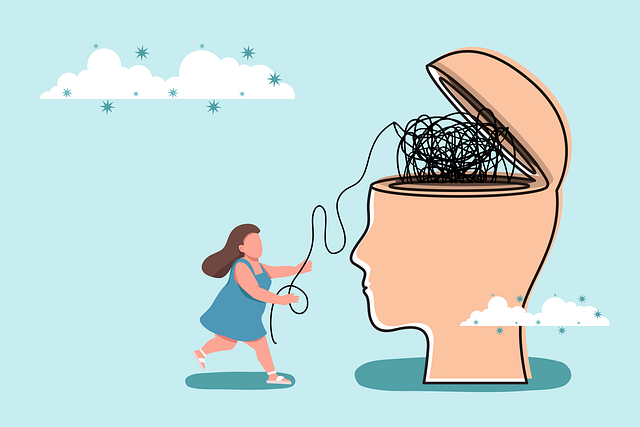Life transitions impact emotional well-being, and psychologists offer guidance. They help individuals navigate changes through therapy, self-care, and mindfulness techniques. Psychologists support clients in developing resilience, managing stress, and celebrating personal growth during challenging times. Effective communication and self-care practices are emphasized as key tools for navigating life transitions successfully with the assistance of a psychologist.
“In our ever-changing world, life transitions are inevitable. Evolving Minds explores the impact of these shifts and offers guidance on navigating them with care. From understanding the psychological effects of major changes to leveraging the expertise of a psychologist for adaptive strategies, this article is your compass. Discover evidence-based approaches to build resilience, foster effective communication, and cultivate self-care practices. Embrace transformation with confidence, guided by expert insights tailored for your well-being.”
- Understanding Life Transitions and Their Impact
- The Role of a Psychologist in Navigating Changes
- Strategies for Adapting to New Circumstances
- Building Resilience During Challenging Times
- Effective Communication for Supportive Relationships
- Cultivating Self-Care Practices for Well-being
Understanding Life Transitions and Their Impact
Life transitions are inevitable changes that can significantly impact an individual’s emotional and mental well-being. These shifts, whether it’s graduating from college, starting a new job, getting married, or dealing with loss, bring a mix of excitement and anxiety. According to psychologists, understanding these transitions as natural parts of life is crucial for developing effective coping mechanisms. Each transition presents unique challenges and opportunities for personal growth.
Psychologists emphasize that recognizing the emotional stages associated with life changes allows individuals to prepare and adapt healthier. By acknowledging the potential impact on mental health, one can actively seek support or develop strategies to navigate these transitions smoothly. This proactive approach enables people to foster resilience, enhancing their ability to embrace new circumstances and emerge with a sense of accomplishment and personal development.
The Role of a Psychologist in Navigating Changes
When facing life transitions, whether it’s a new job, moving to a different city, or dealing with significant personal changes, individuals often find themselves overwhelmed and uncertain. This is where a psychologist plays a pivotal role in guiding one through these challenging times. Their expertise lies in helping people make sense of their emotions, thoughts, and behaviors during periods of transition.
A psychologist offers a safe and non-judgmental space for clients to explore their feelings, fears, and aspirations related to the change. Through various therapeutic techniques, they assist individuals in developing coping strategies tailored to their unique situations. By fostering self-awareness, psychologists empower people to navigate life transitions with resilience, ensuring they emerge with a renewed sense of purpose and well-being.
Strategies for Adapting to New Circumstances
Navigating life transitions can be challenging, but psychologists offer valuable strategies for adapting to new circumstances. One key approach is cultivating a growth mindset, embracing change as an opportunity for personal development and resilience. Psychologists often encourage individuals to practice self-care during transitional periods, including maintaining a balanced routine, engaging in activities that foster well-being, and seeking support from loved ones or professional therapists.
Additionally, psychologists suggest breaking down large transitions into manageable steps, setting realistic goals, and celebrating small victories along the way. Mindfulness practices, such as meditation and journaling, can help individuals stay grounded, process emotions effectively, and develop a deeper understanding of their thoughts and feelings during times of change.
Building Resilience During Challenging Times
Navigating life transitions can be daunting, especially during challenging times. This is where psychologists play a pivotal role in helping individuals build resilience and navigate these turbulent periods. By understanding the unique challenges that come with change, such as job shifts, relationships ending, or dealing with major health issues, psychologists offer valuable strategies to cope. They assist clients in cultivating mental fortitude, enhancing problem-solving skills, and developing adaptive coping mechanisms.
Through various therapeutic approaches, including cognitive-behavioral therapy (CBT) and mindfulness practices, individuals can learn to reframe negative thoughts, manage stress effectively, and foster a sense of control. This empowerment allows them to embrace change as an opportunity for growth, transforming challenges into stepping stones for personal development.
Effective Communication for Supportive Relationships
Effective communication is a cornerstone in fostering supportive relationships, especially during life transitions, where individuals often seek guidance from psychologists or therapists. Open dialogue allows for the expression of fears, hopes, and concerns, creating a safe space to explore emotions and challenges. Psychologists play a vital role in teaching clients effective communication skills, helping them articulate their needs and understand others’ perspectives.
This process involves active listening, where therapists demonstrate empathy and validate clients’ feelings, fostering trust. By encouraging honest conversations, psychologists enable individuals to navigate transitions with resilience, providing tools for healthy relationships and emotional well-being.
Cultivating Self-Care Practices for Well-being
In navigating life transitions, self-care practices are essential tools offered by psychologists to foster well-being. These practices serve as a beacon of resilience and adaptability, guiding individuals through periods of change and uncertainty. Simple yet profound acts like prioritizing sleep, engaging in regular physical activity, and practicing mindfulness can significantly enhance one’s ability to cope with life transitions. Such self-care rituals not only alleviate stress but also empower individuals to maintain mental clarity and emotional balance.
Psychologists emphasize that cultivating a consistent self-care routine is transformative. It allows for better management of emotions, improved decision-making, and enhanced overall quality of life. By integrating these practices into daily routines, folks can better navigate the challenges that arise during life transitions, ensuring they remain grounded, resilient, and focused on their well-being.
Navigating life transitions can be daunting, but with the guidance of a psychologist and implementing effective strategies, individuals can foster resilience and adapt successfully. By understanding the impact of these changes and adopting self-care practices, one can thrive during challenging times. The article has explored various tools, from communication techniques to building resilience, empowering folks to embrace new circumstances with confidence. Remember, seeking support from a psychologist is a proactive step towards managing life transitions, ensuring a smoother journey ahead.



